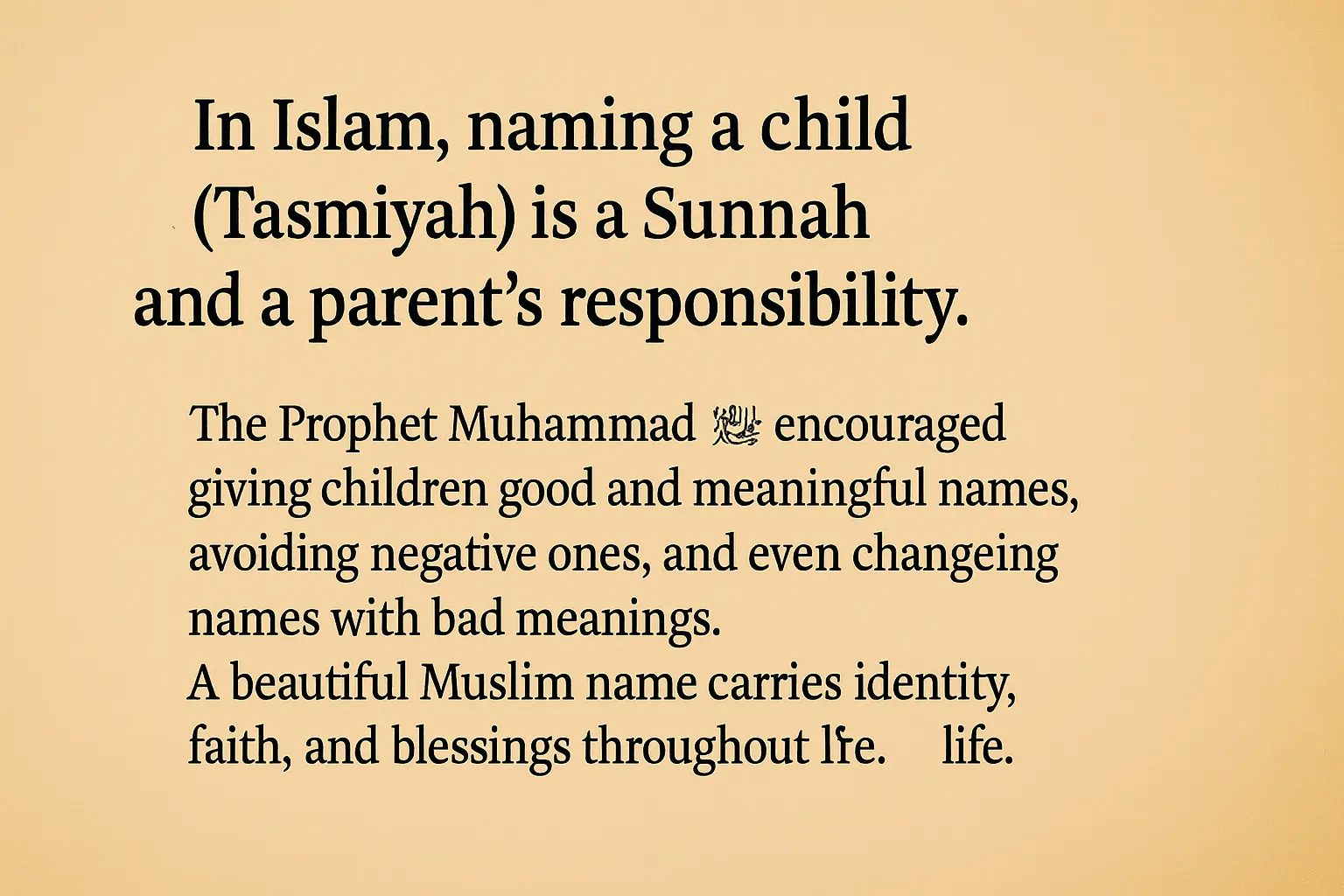
Why Muslims Need a Good Name
Tasmiyah (Naming the Child in Islam)
Naming a child (Tasmiyah) is a beautiful Sunnah taught by the Messenger of Allah ﷺ. Every member of the family deserves a good and honorable name, as names carry deep meaning and influence a person’s identity. Parents who ask Allah ﷻ for children should also pray that their children grow as followers of the Prophet Muhammad ﷺ and adherents to his Sunnah.
It is an obligation upon parents to give their child a good name. Some Ahadeeth mention that the child should be named on the seventh day along with the Aqeeqah. However, the Prophet ﷺ also named children on the day of their birth, as mentioned in authentic narrations. Thus, naming on the first day or before the seventh day is permissible, but if delayed, then the child should definitely be named on the seventh day.
Importance of Choosing a Good Name
The Prophet Muhammad ﷺ always chose names with good and beautiful meanings. He even instructed people to change their names if they carried negative or unpleasant meanings. A name is not just an identity—it reflects faith, values, and character.
Abu Musa (RA) narrated: “A son was born to me and I took him to the Prophet ﷺ who named him Ibrahim, did tahneek for him with a date, invoked Allah’s blessing upon him, and returned him to me.”
— Sahih Bukhari 7:376Ibn Umar (RA) reported that Allah’s Messenger ﷺ said: “The names dearest to Allah are Abdullah and Abdur-Rahman.”
— Sahih Muslim 3:5315Abu Wahab al-Jushamee (RA) narrated that the Prophet ﷺ said:
“Call yourselves by the names of the Prophets. The names dearest to Allah are Abdullah and Abdur Rahman, the truest are Harith (ploughman) and Hammam (energetic), and the worst are Harb (war) and Murrah (bitter).”
— Sunan Abu Dawood 3:4140Abu Hurayrah (RA) narrated that the Prophet ﷺ said:
“The most awful name in Allah’s sight on the Day of Resurrection will be that of a man calling himself Malik al-Amlak (King of Kings).”
— Sahih Bukhari 8:224
Prophet ﷺ Changing Names
The Prophet ﷺ also changed names that had negative meanings:
Ibn Umar (RA) reported that the Messenger of Allah ﷺ changed the name Aasiyah (disobedient) and said: “You are Jameelah (good and beautiful).”
— Sahih Muslim 3:5332 & 4747
(Note: This name should not be confused with Asiya, the righteous wife of Pharaoh, who is honored in Islamic tradition. See Islamic glossary.)
Usaman Ibn Akhdari (RA) said: “A man called Asram (harsh, severe, cut off) came to the Prophet ﷺ. The Prophet ﷺ asked, ‘What is your name?’ He replied, ‘Asram.’ The Prophet ﷺ said, ‘No, you are Zu’rah (derived from sowing seed or crop).’”
— Sunan Abu Dawood 3:4144
Conclusion
In Islam, naming a child is an act of responsibility and spirituality. Parents are encouraged to choose names with positive, honorable, and beautiful meanings. Good names not only please Allah ﷻ but also give children a sense of dignity and identity rooted in faith.
✨ Choosing a meaningful Muslim baby name is part of preserving Islamic heritage and ensuring that children grow with names that inspire goodness, piety, and blessings.